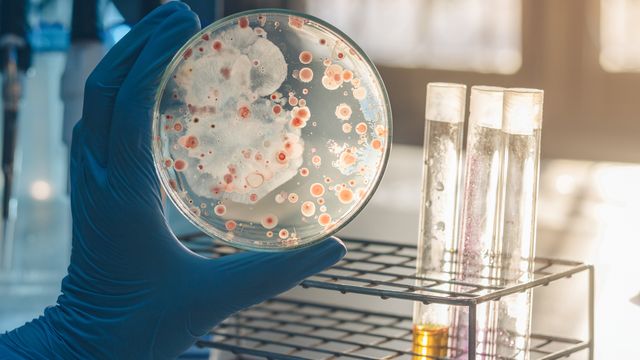Endotoxin-Producing Bacteria Testing in Water Samples
The presence of endotoxins in water samples is a critical concern in clinical and healthcare testing. Endotoxins, derived from the cell walls of Gram-negative bacteria, are pyrogenic substances that can cause severe health issues including fever, sepsis, and even death if not controlled adequately.
Water supplies used for medical purposes, such as dialysis or intravenous therapy, must be free from endotoxins to prevent these adverse effects. This service provides a comprehensive testing method using the Limulus Amoebocyte Lysate (LAL) test, which is internationally recognized and standardized by ISO/IEC 17025.
The process involves collecting water samples under strict aseptic conditions to ensure that any detected endotoxins are from the sample itself rather than contamination. After collection, the samples undergo rigorous preparation steps including dilution and filtration to concentrate potential endotoxin levels. The LAL test then measures the activity of these endotoxins in parts per trillion (ppt).
Our laboratory employs state-of-the-art equipment and highly trained professionals to ensure accurate results that comply with international standards like ISO 11137-1:2019. Compliance officers and quality managers can rely on our services for ensuring the safety of water supplies used in medical applications.
The importance of this testing extends beyond healthcare into various sectors including pharmaceuticals, cosmetics, and food manufacturing where water is a critical component. By adhering to stringent protocols and using advanced technology, we provide reliable data that supports regulatory compliance and product safety.
| Industry Applications | ||||
|---|---|---|---|---|
| Dialysis | Intravenous Therapy | Pharmaceutical Manufacturing | Cosmetics | Food Manufacturing |
The Limulus Amoebocyte Lysate (LAL) test is a cornerstone of endotoxin detection. It relies on the reaction between the amoebocytes from horseshoe crabs and lipopolysaccharides present in endotoxins, leading to clot formation which indicates the presence of endotoxins.
Our laboratory ensures that all tests are conducted under controlled conditions to minimize variability. This includes maintaining strict temperature controls during sample preparation and testing, as well as ensuring consistent reagent quality throughout the process.
Industry Applications
- Dialysis units in hospitals where water purity is crucial for patient safety
- Intravenous therapy products requiring sterile water
- Pharmaceutical manufacturing processes involving water as an ingredient or final rinse
- Cosmetics and personal care products that may use purified water during production
- Food processing plants using water in the preparation of beverages or cleaning equipment
Quality and Reliability Assurance
The quality assurance process for endotoxin testing begins with thorough sample collection, which is critical to the accuracy of subsequent tests. Our laboratory adheres strictly to international standards such as ISO/IEC 17025 when performing these tests. This ensures that our results are reliable and consistent.
After initial sample preparation, we use advanced instrumentation like the LAL chromogenic system for precise quantification. The equipment is calibrated regularly to maintain accuracy over time. Additionally, internal quality control measures include periodic audits of test procedures and comparisons with external laboratories.
Our team consists of experienced microbiologists and chemists who are well-versed in the nuances of endotoxin testing. They follow strict protocols to prevent cross-contamination and ensure that each sample is handled appropriately from collection through final analysis.
The results from our laboratory are not only precise but also detailed, providing a comprehensive report on the presence or absence of endotoxins along with their concentration levels if detected. Compliance officers can use these reports to make informed decisions about water quality in their facilities.
International Acceptance and Recognition
- ISO/IEC 17025:2017 certification for our laboratory practices
- American Society for Testing and Materials (ASTM) E846-18 standard methods of testing
- European Norm EN ISO/IEC 17025:2017 compliance
- International Organization for Standardization (ISO) standards for endotoxin testing
- World Health Organization guidelines on water quality and safety





